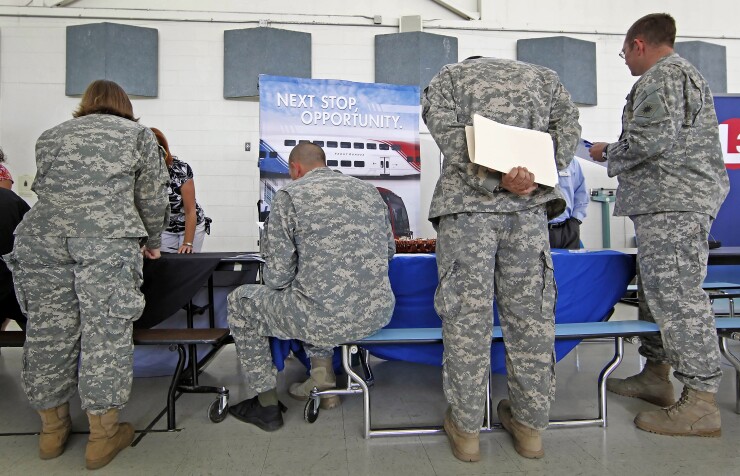If you could retain employees who execute efficiently, are eager for new responsibility, work effectively under stress and stick with a task no matter how long it takes, wouldn’t you? The answer seems obvious, and there’s a huge pool of candidates with just these traits looking for jobs: military veterans.
There are nearly 18 million veterans in the U.S., about 8% of the civilian population aged 18 and over, according to the
But they are often unsuccessful keeping those veterans on the payroll. In a
Retaining and engaging veterans on your team doesn’t have to be difficult or expensive — but it does take some special consideration. Keep these key points in mind to keep your valuable veterans on the job.
Understand the magnitude of the transition. Veterans bring many valuable skills that transfer well to corporate jobs, but being in the office can be a big change. In the military, the mission and expectations are clearly defined, specific and rigid. Corporations usually have defined goals and processes, but there’s more room for flexibility.
Corporate culture often is a major change for veterans, too. They’ve been trained to compartmentalize their feelings and not question leadership, while in their new roles, they’re likely expected to do just the opposite.
Nicholas Johnson joined Unum as an information technology service delivery manager after serving in the Air Force, swapping strict structure and a regimented chain of command for a collaborative workspace, agile working and an open-door policy.
“I felt like a fish out of water,” he says of the culture shock he faced.
Create an onboarding program. Providing one-to-one resources to steer the way will help veterans navigate the transition from military to corporate life. Assign new hires a sponsor — ideally from the same branch of service and similar rank — who can help them acclimate to their new surroundings, understand civilian norms and serve as a sounding board for questions and concerns.
Consider following this 90-day sponsorship period with a year-long mentorship. The more seasoned mentor can help guide the veteran in the new role, providing insight, support and suggestions for career development.
Educate company leaders. Help your company’s leadership understand the differences and similarities between military and corporate culture. Show them ways they can actively engage veterans to help them succeed. For example, managers may have to pay special attention to veterans in staff meetings to encourage them to voice their ideas and questions, since they may have come from an environment where they didn’t question leaders.
Managers may also benefit from training to recognize the signs of stress and anxiety. In their former military life, veterans were expected to push forward to complete their mission, no matter what. While admirable it’s often more effective for employees to ask for help when they need it in the corporate world. Managers can demonstrate that’s not only okay, but encouraged.
Military veterans can bring tremendous expertise and talent to your organization. By investing a little thought and extra effort, you can help them survive and thrive in your workplace — and that’ll benefit your entire team.






